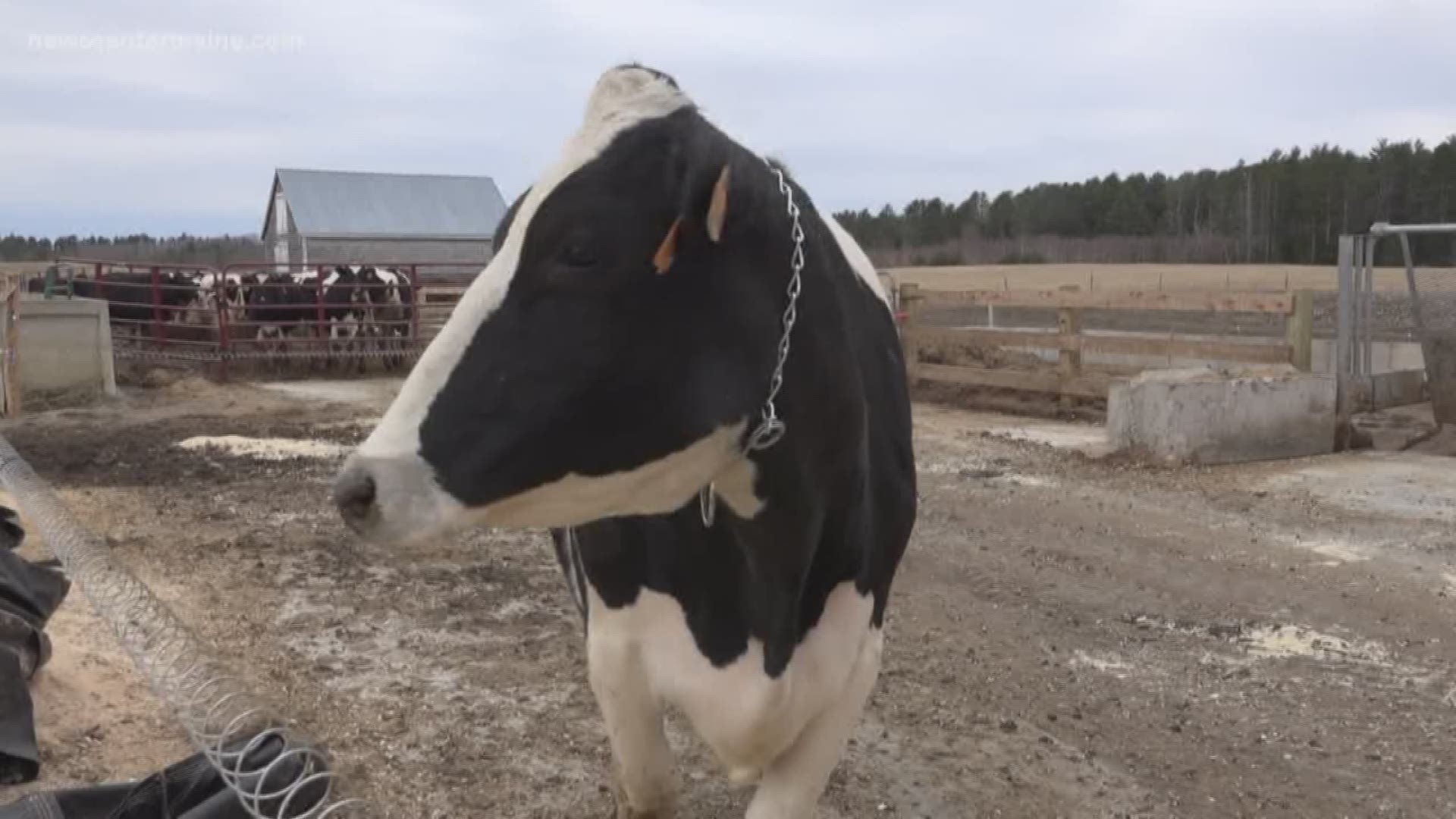WHITEFIELD, Maine — You likely have this in your fridge right now or it's on your shopping list.
When it comes to milk, we don't often think about where it comes from and in Maine, there are more than 200 dairy farms.
But dairy farmers are getting some of the lowest prices in years for their milk.
It's an issue nationwide. In Maine, though, some have found hope in part thanks to niche dairy markets. For example, organic milk used to make yogurt and cheese.
"It's a life like no other," said Annie Watson. "I never expected to be doing this but I can't imagine doing anything else now."
Annie Watson and her husband own Sheepscot Valley Farm in Whitefield. There, dozens of cows produce 450 gallons of organic milk a day.
Their milk goes to Stonyfield in New Hampshire and is used to make yogurt and cheese.
But even by tapping into that niche dairy market, they're feeling the pinch like so many others.
"Dairy farms in the state, dairy farms across the country are facing an economic crisis," said Watson. "Unfortunately we are at the mercy of price makers and price setters we don't control what the price is."
Watson says the price drop is devastating.
"Sometimes we don't pay ourselves which we were really excited to start doing that a couple of years ago but now we've had to stop to make sure we're taking care of our employees."
Watson and her husband bought the farm in 2013, a time when many dairy farms were closing.
At least a hundred dairy farms closed over the last decade in Maine, according to the Maine Milk Commission.
But the amount of milk produced has increased and several farmers have tapped into niche markets like Sheepscot Valley Farm has with organic milk.
"There's no organic processing in the state at the moment which provides a bit of uncertainty for us," Watson said.
"Whether it's organic or conventional we could use more dairy processing, small to mid-scale processing in Maine," said Julie-Marie Bickford, Executive Director of the Maine Dairy Industry Association.
The Maine Dairy Industry Association is a trade association which represents Maine's dairy farmers.
Bickford says Maine farmers have the support of the Maine Milk Commission and the Maine Dairy Stabilization program which help set minimum milk prices to provide farmers a sense of stability.
"If we had a wish list of how we could fix this system we would fix the formula that sets that federal pricing so that what the consumer is paying in the store, the farmer gets their fair share of that," said Bickford.
This month the USDA announced it's starting to implement the 2018 Farm Bill.
Watson calls it a bandaid.
"Dairy farmers don't want to be subsidized," she said. "We'd rather get paid a fair price for our product and that's not going to happen until there's some stability in the market."
She and others are concerned about the future, with their livelihoods on the line.
"When you're so connected to the business in which you run and you spend your life it's really hard to separate the two," said Watson.
Maine dairy farms produce 71 million gallons of milk a year, according to the Maine Dairy Industry Association. 27% of those farms produce organic milk and that's one of the highest percentages in the nation.

